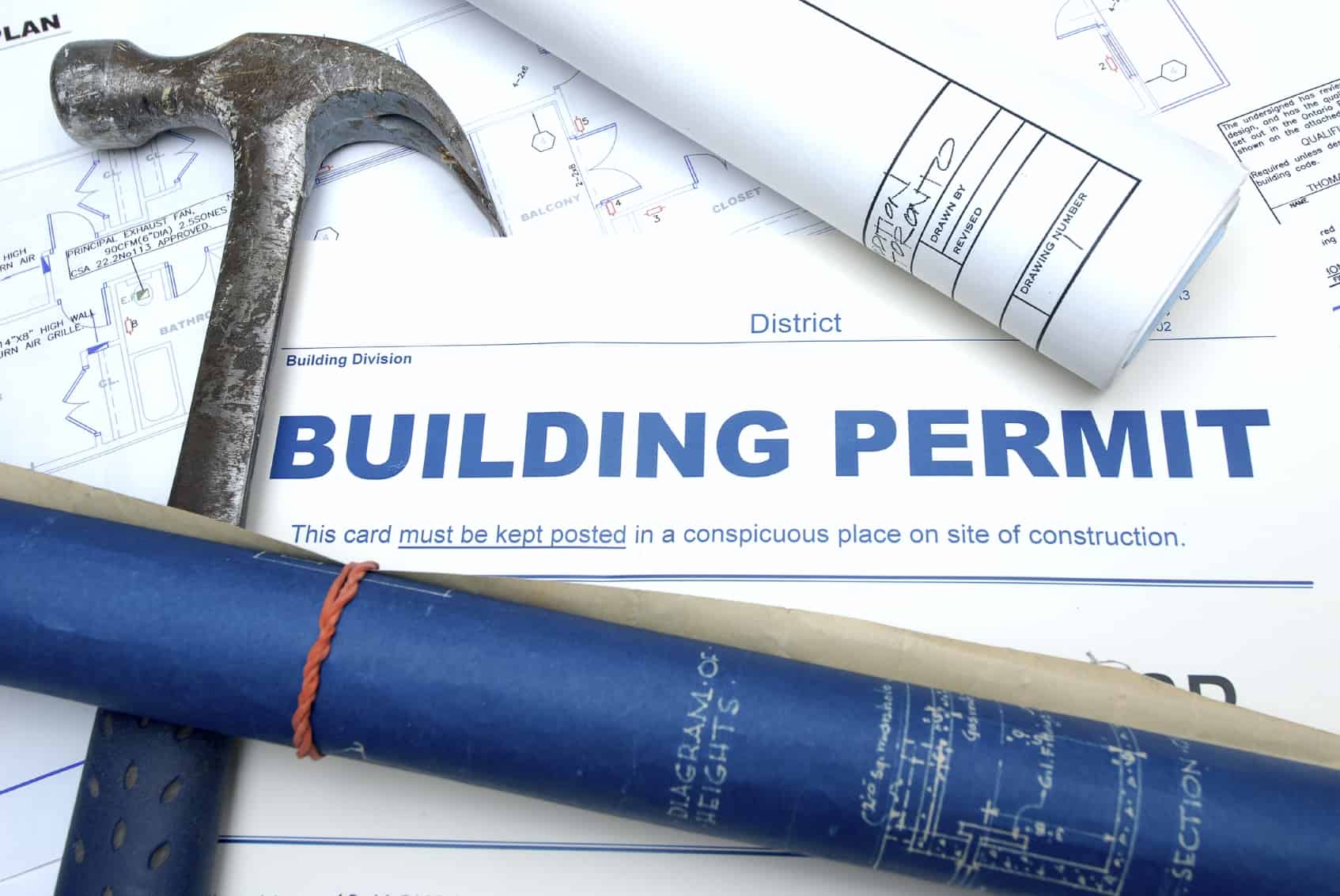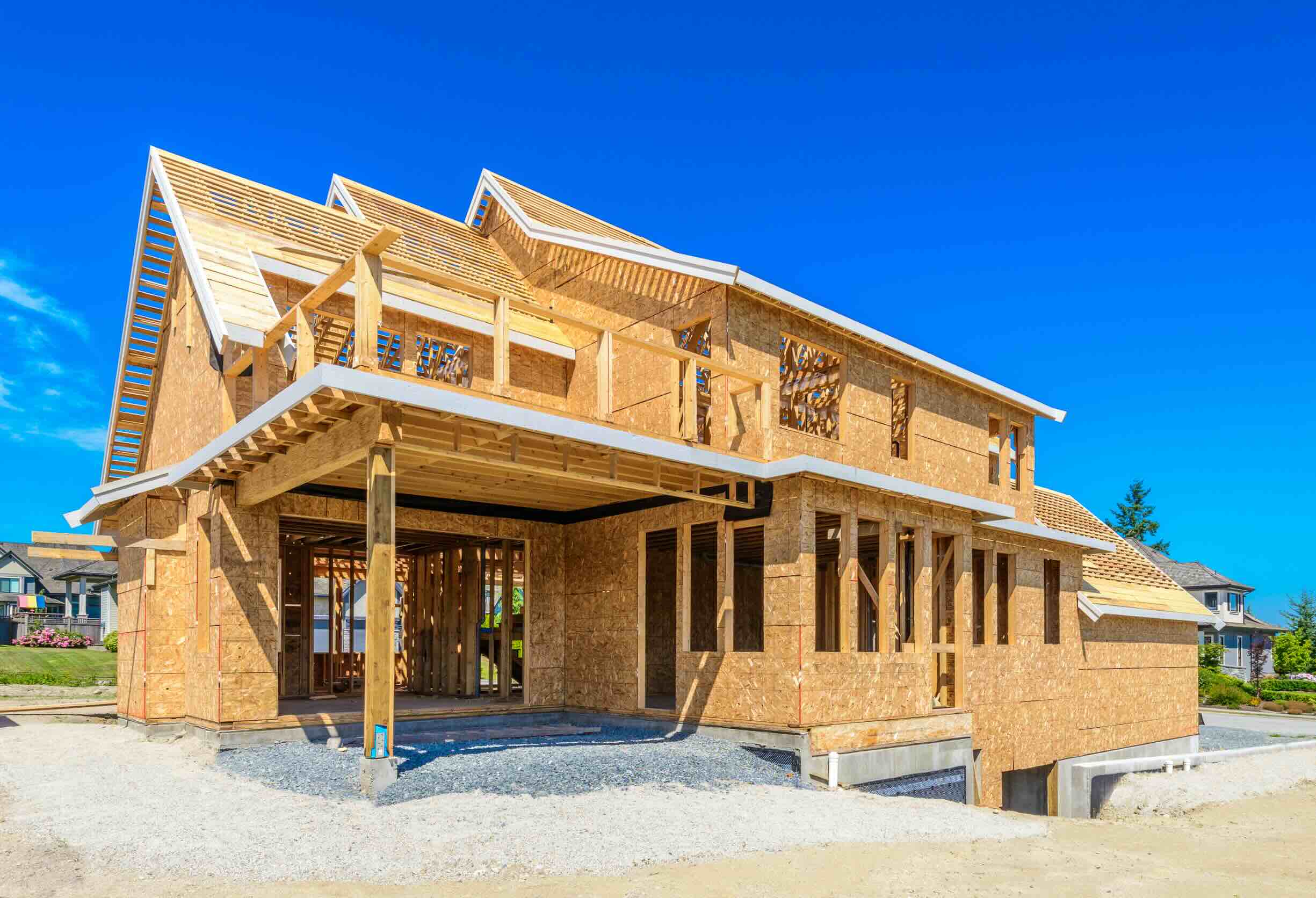Home>diy>Building & Construction>How To Get Clients For Construction Business


Building & Construction
How To Get Clients For Construction Business
Modified: January 4, 2024
Learn proven strategies to attract new clients for your building construction business. Increase your customer base and grow your revenue with our expert tips.
(Many of the links in this article redirect to a specific reviewed product. Your purchase of these products through affiliate links helps to generate commission for Storables.com, at no extra cost. Learn more)
Introduction
Welcome to the world of construction business! As an entrepreneur in the building industry, one of your top priorities is to attract and secure clients for your services. However, with competition in the construction sector becoming increasingly fierce, it is vital to employ effective strategies that can help you stand out from the crowd.
In this article, we will explore various methods to help you get clients for your construction business. From understanding your target market to building a strong online presence, utilizing social media marketing, networking, developing a referral program, creating engaging marketing materials, presenting your value proposition, providing exceptional customer service, leveraging case studies and testimonials, to tracking and analyzing your marketing efforts, we will cover everything you need to know to succeed.
By implementing the strategies outlined in this article, you will position your construction business for long-term success, attract high-quality clients, and ultimately build a strong and profitable brand in the industry.
So, let’s dive in and discover how to drive growth and get clients for your construction business!
Key Takeaways:
- Understand your target market to tailor your marketing messages, choose effective channels, and refine your services to attract high-quality clients for your construction business.
- Build a strong online presence, leverage social media marketing, and create engaging marketing materials to increase visibility, establish credibility, and attract clients actively seeking construction services.
Read more: How To Scale Construction Business
Understanding Your Target Market
Before you can effectively attract clients for your construction business, it is crucial to have a deep understanding of your target market. Knowing who your ideal clients are will help you tailor your marketing strategies and messaging to resonate with them.
Start by conducting market research to identify the demographics and psychographics of your target audience. Demographics include factors such as age, gender, income level, location, and occupation. Psychographics delve into the interests, values, behaviors, and preferences of your potential clients.
By understanding your target market, you can create buyer personas, which are fictional representations of your ideal clients. This exercise helps you humanize your audience and gain insight into their needs and pain points.
Once you have a clear picture of your target market, you can tailor your marketing messages to address their specific needs and desires. For example, if your construction business specializes in high-end residential projects, your messaging should highlight luxury, quality craftsmanship, and attention to detail.
Furthermore, understanding your target market will also help you choose the most effective marketing channels to reach them. If your ideal clients are young professionals, you may want to focus your efforts on digital marketing and social media platforms, whereas if your target market is older homeowners, reaching out through local newspapers and community events might be more effective.
Additionally, understanding your target market will guide your product and service offerings. Based on their needs and preferences, you can refine your construction services to address specific pain points and provide solutions that add value to their lives.
By thoroughly understanding your target market, you will be better equipped to create targeted marketing campaigns, deliver personalized messages, and attract clients who are more likely to engage with your construction business.
Building a Strong Online Presence
In today’s digital age, having a strong online presence is essential for attracting clients to your construction business. The internet provides a vast array of opportunities to showcase your expertise, connect with potential clients, and establish credibility in the industry. Here are some key steps to build a strong online presence:
- Create a professional website: Your website is the virtual storefront of your construction business. Ensure that it has an attractive design, is user-friendly, and showcases your past projects, services, and client testimonials. Use search engine optimization (SEO) techniques to increase its visibility in search engine results.
- Optimize for local search: Most clients looking for construction services search locally. Make sure your website is optimized for local SEO by including your location in key elements such as page titles, headings, and meta descriptions. Also, create a Google My Business profile and encourage satisfied clients to leave positive reviews.
- Showcase your portfolio: Including a portfolio of your previous projects on your website can greatly influence potential clients. Include high-quality photos, descriptions of the projects, and any accolades or awards received. This will demonstrate your skills and the quality of work you deliver.
- Start a blog: Creating informative and engaging blog content related to the construction industry can establish you as an authority in your field. Share tips, industry trends, and insights that will be useful to your target audience. This not only helps attract potential clients but also improves your website’s search engine rankings.
- Utilize social media platforms: Engage with potential clients and showcase your expertise on social media platforms such as Facebook, Instagram, and LinkedIn. Share updates on your projects, interact with followers, and participate in relevant industry discussions. This helps build credibility and establishes a connection with your target audience.
- Invest in online advertising: Consider running targeted online advertisements to reach a wider audience. Platforms like Google Ads and social media advertising can be powerful tools for getting your construction business in front of potential clients.
Remember, consistency is key when building your online presence. Regularly update your website with new content, maintain an active social media presence, and monitor and respond to online reviews and comments.
By building a strong online presence, you will increase your visibility, establish credibility, and attract clients who are actively searching for construction services.
Utilizing Social Media Marketing
Social media platforms have become powerful tools for businesses to connect with their target audience, and the construction industry is no exception. By utilizing social media marketing, you can effectively attract clients and build a strong online presence. Here are some effective strategies to leverage social media for your construction business:
- Choose the right platforms: Identify the social media platforms that your target audience frequents the most. For the construction industry, platforms like Facebook, Instagram, and LinkedIn can be particularly beneficial. Selecting the right platforms will optimize your reach and engagement with potential clients.
- Create engaging content: Develop a content strategy that revolves around your target audience’s needs and interests. Share captivating images and videos of your construction projects, provide tips and insights related to home improvement or construction, and showcase your expertise through informative and engaging content.
- Interact with your audience: Social media provides an invaluable opportunity for direct interaction with potential clients. Respond promptly to comments, answer queries, and engage in conversations. This will help you build trust, establish relationships, and portray your construction business as responsive and customer-oriented.
- Utilize hashtags: Hashtags allow you to reach a wider audience and increase the discoverability of your content. Research and use relevant industry-specific hashtags in your social media posts to connect with individuals who are interested in construction-related topics.
- Collaborate with influencers: Partnering with influencers in the construction or home improvement niche can expand your reach and credibility. Identify influencers who align with your values and target audience and collaborate on mutually beneficial projects, such as sponsored content or giveaways.
- Run targeted ads: Social media platforms provide robust advertising features that allow you to target specific demographics and interests. Create targeted ad campaigns that highlight your construction services and reach potential clients who are likely to be interested in your offerings.
- Monitor analytics: Regularly analyze your social media analytics to evaluate the performance of your posts, identify trends, and understand what content resonates the most with your audience. Adjust your social media strategy based on these insights to optimize your marketing efforts.
Social media marketing allows you to showcase your construction business, connect with potential clients, and establish your brand as a reputable and trustworthy industry player. By leveraging the power of social media, you can attract clients and grow your construction business.
Networking and Building Relationships
Networking and building relationships are crucial aspects of growing and attracting clients for your construction business. By developing a strong professional network and nurturing relationships, you can gain referrals, collaborate on projects, and establish your credibility in the industry. Here are some strategies for effective networking and relationship building:
- Attend industry events: Participate in construction industry events, trade shows, and conferences to meet fellow professionals and potential clients. Engage in conversations, exchange business cards, and follow up with individuals you meet to maintain connections.
- Join professional organizations: Become a member of construction-related professional organizations and associations. These groups provide valuable networking opportunities, educational resources, and industry insights. Actively participate and engage in discussions to build relationships with other members.
- Collaborate with complementary businesses: Identify businesses that offer complementary services to your construction business, such as architects or interior designers. Collaborate on projects, refer clients to each other, and develop mutually beneficial partnerships that can expand your reach and attract new clients.
- Stay connected through social media: Connect with industry professionals and potential clients through social media platforms like LinkedIn. Engage in conversations, share valuable content, and build relationships by staying active and supportive within your network.
- Provide referrals: One of the best ways to receive referrals is to give them. Refer clients to other reliable professionals in your network and establish yourself as a trusted resource. The goodwill generated from providing referrals can result in reciprocal referrals and a strengthened network.
- Attend local community events: Get involved in your local community and attend events where you can meet homeowners and property managers. By establishing a presence in the community, you can build relationships with influential individuals and generate leads.
- Follow up and stay in touch: After meeting new contacts or potential clients, follow up with personalized messages or emails. Stay in touch with your network by sending periodic updates, newsletters, or relevant industry news. Regularly nurturing relationships can lead to long-term connections and potential business opportunities.
Remember, networking is not just about making connections for immediate gains. It is about building genuine relationships based on trust and mutual support. By investing time and effort into networking and building relationships within the construction industry, you can attract clients, gain valuable referrals, and establish yourself as a reputable professional in your field.
Developing a Referral Program
A referral program can be a powerful tool for attracting clients to your construction business. By encouraging satisfied clients and industry contacts to refer new clients to you, you can tap into a valuable source of leads. Here are some steps to develop an effective referral program:
- Provide exceptional service: The foundation of a successful referral program is delivering exceptional service to your clients. Ensure that every project you undertake exceeds expectations and leaves your clients satisfied. Happy clients are more likely to recommend your services to others.
- Communicate your referral program: Let your clients and industry contacts know that you have a referral program in place. Clearly communicate the details of the program, such as the incentives offered, the process for making referrals, and any specific requirements or restrictions.
- Incentivize referrals: Offering incentives can encourage individuals to actively refer new clients to your construction business. Consider providing referral bonuses, discounts on future services, or even small gifts for every successful referral. Make sure the incentives are valuable and relevant to your target audience.
- Create referral materials: Develop marketing materials specifically for your referral program. This can include promotional flyers, referral cards, or email templates that make it easy for your clients and contacts to refer your business.
- Follow up with referrals: When you receive a referral, promptly contact the referred individual and thank them for their interest in your services. Keep them informed throughout the process and make sure they feel valued and supported.
- Express gratitude: Always show gratitude to those who refer clients to you. Send personalized thank-you notes or gifts as a way of expressing your appreciation. This not only strengthens the relationship with the referrer but also encourages them to continue referring new clients.
- Track and reward referrals: Establish a system to track the referrals you receive and ensure that you reward referrers according to the terms of your referral program. This helps maintain transparency and encourages continued participation in the program.
- Promote your referral program: Actively promote your referral program through various marketing channels. Use social media, your website, email newsletters, and offline marketing materials to spread the word about your program and its benefits.
A well-executed referral program can be a cost-effective and highly successful method for attracting new clients. By leveraging the satisfaction of your existing clients and fostering strong relationships with industry contacts, you can tap into a reliable stream of qualified leads for your construction business.
Utilize social media platforms to showcase your previous projects, engage with potential clients, and build a strong online presence for your construction business.
Creating Engaging Marketing Materials
In order to attract clients to your construction business, it’s essential to create engaging marketing materials that showcase your expertise and value proposition. Well-designed and informative marketing materials can help you stand out from competitors and leave a lasting impression on potential clients. Here are some important considerations when creating your marketing materials:
- Clear and compelling messaging: Craft a clear and compelling message that effectively communicates the unique benefits of your construction services. Clearly outline what sets your business apart from others and why potential clients should choose you.
- High-quality visuals: Invest in high-quality visuals, such as professional photography or well-designed graphics, to showcase your past projects. Visuals that highlight your attention to detail, craftsmanship, and the overall quality of your work will leave a strong impact on potential clients.
- Case studies and testimonials: Include case studies and testimonials from satisfied clients to build credibility and demonstrate your ability to deliver exceptional results. Highlight successful projects, showcase client testimonials, and provide before and after photos to showcase the transformation you can achieve through your construction services.
- Use storytelling: Incorporate storytelling techniques into your marketing materials to engage potential clients on an emotional level. Share stories that demonstrate how your construction services have positively impacted clients’ lives, highlighting the challenges faced and the successful outcomes achieved.
- Provide valuable content: In addition to promoting your construction services, offer valuable content that educates and informs your target audience. This could include blog articles, e-books, or guides that provide insights and tips related to the construction industry. By positioning yourself as a knowledgeable and helpful resource, you can attract and retain clients.
- Consistent branding: Maintain a consistent brand identity across all your marketing materials, including your website, brochures, business cards, and social media profiles. Consistent branding helps establish credibility, professionalism, and recognition among potential clients.
- Call-to-action: Include a clear call-to-action in your marketing materials, prompting potential clients to take the next step. Whether it’s contacting you for a consultation, requesting a quote, or scheduling a site visit, a strong call-to-action encourages potential clients to engage with your construction business.
- Adapt to digital channels: Ensure that your marketing materials are optimized for digital channels. A responsive website, mobile-friendly design, and digital brochures or catalogs can enhance your online presence and reach a larger audience.
Remember, the key to creating engaging marketing materials is to showcase your expertise, build trust, and communicate the unique value your construction business brings to clients. By investing time and effort in creating compelling marketing materials, you can effectively attract and convert potential clients into loyal customers.
Effectively Presenting Your Value Proposition
Effectively presenting your value proposition is crucial for attracting clients to your construction business. A value proposition succinctly communicates the unique benefits and value your business offers to potential clients. Here are some key strategies to effectively present your value proposition:
- Identify your unique selling points: Analyze your construction business and identify its unique selling points. What sets you apart from your competitors? Is it your expertise in a specific construction niche, your commitment to using eco-friendly materials, or your exceptional customer service? Clearly define your unique selling points to form the foundation of your value proposition.
- Understand your target audience’s needs: Gain a deep understanding of your target audience’s needs, pain points, and desires. What specific challenges are they facing when it comes to construction projects? How can your services address these challenges? Craft your value proposition to directly address the needs of your target audience.
- Use clear and concise language: Avoid technical jargon or industry buzzwords that may confuse or alienate potential clients. Use clear, simple language that is easy for anyone to understand. Focus on conveying the tangible benefits your construction business provides.
- Quantify your value: Where possible, use numbers and data to quantify the value your business brings to clients. For example, if your construction projects are completed on-time and within budget 90% of the time, highlight this as a key value proposition. Demonstrate how your services save clients time, money, or resources.
- Showcase success stories: Share case studies or success stories that illustrate how your construction services have benefited previous clients. Highlight specific challenges faced, the innovative solutions you provided, and the positive outcomes achieved. These real-life examples help potential clients understand the value you can deliver.
- Highlight your expertise and credentials: Establish your credibility by showcasing your construction business’s expertise and credentials. Mention any certifications, industry awards, or affiliations that demonstrate your commitment to quality and excellence. This helps build trust and confidence in your value proposition.
- Address objections proactively: Anticipate and address potential objections or concerns that potential clients may have. For example, if cost is a common concern in the construction industry, emphasize how your business offers competitive pricing without compromising quality. Presenting solutions to common objections strengthens your value proposition.
- Be consistent across all touchpoints: Ensure that your value proposition is consistently communicated across all your marketing channels and touchpoints. Whether it’s your website, social media profiles, brochures, or interactions with potential clients, your value proposition should be clear and consistent.
Remember, effectively presenting your value proposition is about clearly communicating the unique benefits and value your construction business offers to potential clients. By crafting a compelling value proposition and consistently communicating it, you can attract clients who resonate with your unique offering and who recognize the value you bring to their construction projects.
Providing Exceptional Customer Service
Exceptional customer service is a critical factor in attracting and retaining clients for your construction business. When clients have a positive experience working with you, they are more likely to refer you to others and become repeat customers themselves. Here are some key strategies for providing exceptional customer service:
- Listen actively: Take the time to really listen to your clients’ needs and concerns. Understand their vision and goals for their construction project. Show genuine empathy and make them feel heard and understood.
- Communicate effectively: Establish open lines of communication with your clients and keep them informed at every stage of the project. Regularly update them on progress, address any questions or concerns promptly, and be transparent about any challenges or changes that may arise.
- Set realistic expectations: Be honest and realistic with your clients about what can be achieved within the given timeline and budget. Clearly communicate any limitations or potential obstacles upfront to avoid misunderstandings or disappointment later on.
- Deliver on your promises: Consistently meet or exceed client expectations by delivering high-quality work and completing projects on time and within budget. Be reliable, dependable, and fulfill the commitments you make to your clients.
- Provide regular updates: Keep clients informed about the progress of their construction project through regular updates. Share milestones and major accomplishments to maintain their excitement and engagement in the process.
- Address concerns promptly: If a client has any concerns or issues, address them promptly and professionally. Listen to their feedback, take responsibility for any mistakes, and work towards finding a satisfactory solution. Show that you value their satisfaction and are committed to resolving any issues that may arise.
- Go above and beyond: Look for opportunities to go the extra mile and exceed client expectations. This could include small gestures like providing timely and detailed estimates, offering design suggestions, or providing exceptional post-construction care.
- Seek feedback and continuously improve: Regularly seek feedback from your clients to understand their experience working with you. Use their feedback to identify areas for improvement and implement changes to enhance your customer service. Continuously striving for improvement shows your commitment to providing the best experience for your clients.
- Train and empower your team: Ensure that everyone in your construction business understands the importance of exceptional customer service. Provide training and empower your team members to deliver exceptional service at every client touchpoint.
By providing exceptional customer service, you not only leave a positive impression on your clients but also build a loyal customer base. Satisfied clients will become enthusiastic brand advocates, referring your construction business to others and contributing to your long-term success.
Read more: How To Get A Job In Construction
Leveraging Case Studies and Testimonials
Leveraging case studies and testimonials is a powerful way to establish credibility and attract clients to your construction business. By showcasing your past successes and the positive experiences of your clients, you provide potential clients with tangible proof of your expertise and the value you provide. Here’s how you can effectively leverage case studies and testimonials:
- Collect testimonials: Reach out to satisfied clients and request testimonials that highlight their positive experiences working with your construction business. Ideally, aim to gather testimonials from different types of clients and projects to showcase your versatility and broad range of capabilities.
- Showcase diverse projects: Select a variety of projects from your portfolio to create case studies. Highlight different types of construction projects, such as residential, commercial, or renovation projects. Include before and after photos, project descriptions, and the specific challenges and solutions involved.
- Highlight the benefits achieved: Clearly illustrate the benefits your construction services provided to your clients. Include details on cost savings, improvements in efficiency, aesthetic enhancements, or any other measurable outcomes that showcase the value you delivered.
- Include client quotes: Incorporate client quotes or anecdotes within your case studies and testimonials. These personal accounts add authenticity and bring the client’s experience to life. Quotes that emphasize their satisfaction, the smoothness of the process, and the quality of workmanship are particularly impactful.
- Use visuals effectively: Use high-quality visuals, including photos and videos, to enhance your case studies and testimonials. Visual representations of completed projects and satisfied clients’ testimonials can make your messages more compelling and engaging for potential clients.
- Share across multiple channels: Promote your case studies and testimonials on various marketing channels. Showcase them on your website, social media platforms, email newsletters, and in marketing collateral. This allows potential clients to access this social proof easily and increases your chances of attracting their attention.
- Encourage online reviews: Actively request online reviews from your satisfied clients on platforms such as Google My Business, Yelp, or industry-specific websites. Positive online reviews can significantly impact your online reputation and help build trust and credibility with potential clients.
- Include client names and affiliations: Whenever possible, include the names and affiliations of the clients providing testimonials or featured in your case studies. This adds credibility and allows potential clients to further research your work if they desire.
- Personalize your case studies: Tailor your case studies to specific industries or target markets. Highlight projects that are relevant to the specific needs and aspirations of potential clients. This customization ensures that your case studies resonate with the right audience.
Leveraging case studies and testimonials is an effective way to showcase your construction business’s capabilities, gain credibility, and instill confidence in potential clients. By presenting real-life success stories, you provide concrete evidence of your expertise and demonstrate your ability to deliver exceptional results.
Tracking and Analyzing Your Marketing Efforts
Tracking and analyzing your marketing efforts is essential for understanding the effectiveness of your strategies, optimizing your campaigns, and attracting clients to your construction business. By gathering data and insights, you can make informed decisions that maximize your return on investment (ROI) and drive growth. Here are some key steps to effectively track and analyze your marketing efforts:
- Define your goals: First, establish clear goals for your marketing efforts. Are you aiming to increase website traffic, generate leads, or boost conversions? Defining your goals will help you determine the metrics to track and align your efforts accordingly.
- Implement tracking tools: Set up tracking tools such as Google Analytics, which provides valuable data on website traffic, user behavior, and conversions. Use UTM parameters to track the performance of specific marketing campaigns or channels. Additionally, utilize call tracking software to measure the effectiveness of your offline marketing efforts.
- Monitor website analytics: Regularly review your website analytics to gain insights into key metrics such as traffic sources, visitor demographics, bounce rates, and conversion rates. This data helps you understand which marketing channels are driving the most traffic and conversions, and where improvements can be made.
- Track lead generation: Set up lead tracking mechanisms to attribute the source of each lead. This could include tracking form submissions, phone calls, or other lead generation activities. By knowing which marketing efforts are generating the most leads, you can focus your resources on the most effective strategies.
- Analyze campaign performance: Continuously analyze the performance of your marketing campaigns. Evaluate key metrics such as click-through rates, conversion rates, and cost per acquisition. Identify the campaigns that are delivering the best results and optimize or reallocate your budget accordingly.
- Collect customer feedback: Gather feedback from your clients to gain insights into their perception of your marketing efforts. This could be in the form of surveys, interviews, or online reviews. Understanding how your marketing messages resonate with your target audience can help you improve future campaigns.
- Segment your data: Analyze your data by segmenting it based on different variables such as demographics, location, or industry. This allows you to identify trends and patterns in your target audience’s behavior and preferences, enabling you to tailor your marketing efforts more effectively.
- Stay updated on industry trends: Continuously stay informed about the latest trends and developments in the construction industry, as well as marketing strategies within your niche. This knowledge will help you identify new opportunities and adjust your marketing efforts accordingly.
- Make data-driven decisions: Finally, use the insights gained from tracking and analyzing your marketing efforts to make data-driven decisions. Adjust your strategies, optimize underperforming campaigns, and invest more resources into the channels and tactics that are yielding the best results.
By tracking and analyzing your marketing efforts, you can gain valuable insights into what works for your construction business and attract clients more effectively. Continuous monitoring and analysis allow you to make data-driven decisions that drive growth, optimize your marketing ROI, and stay ahead of the competition.
Conclusion
Attracting clients for your construction business requires a comprehensive approach that combines understanding your target market, building a strong online presence, utilizing social media marketing, networking, developing a referral program, creating engaging marketing materials, effectively presenting your value proposition, providing exceptional customer service, leveraging case studies and testimonials, and tracking and analyzing your marketing efforts.
By thoroughly understanding your target market and tailoring your marketing strategies to their needs and preferences, you can effectively reach and engage potential clients. Building a strong online presence through a professional website, optimized for local search, and utilizing social media marketing will enhance your visibility and credibility in the digital world.
Networking, collaborating with complementary businesses, and developing a referral program are powerful strategies for expanding your reach and attracting clients through word-of-mouth recommendations. Creating engaging marketing materials that showcase your expertise, value proposition, and credibility will leave a lasting impact on potential clients.
Exceptional customer service plays a crucial role in attracting and retaining clients. By actively listening to clients, communicating effectively, and consistently delivering on your promises, you build trust and loyalty.
Leveraging case studies and testimonials provides social proof of your capabilities and successes, while tracking and analyzing your marketing efforts enables you to make data-driven decisions, optimize your strategies, and maximize your return on investment.
Remember, attracting clients for your construction business is an ongoing process that requires continuous refinement and adaptation to market trends. Stay informed, remain flexible, and consistently deliver an exceptional client experience. By implementing the strategies outlined in this article, you will position your construction business for long-term success and forge strong relationships with clients who recognize and appreciate the value you provide.
Frequently Asked Questions about How To Get Clients For Construction Business
Was this page helpful?
At Storables.com, we guarantee accurate and reliable information. Our content, validated by Expert Board Contributors, is crafted following stringent Editorial Policies. We're committed to providing you with well-researched, expert-backed insights for all your informational needs.














0 thoughts on “How To Get Clients For Construction Business”